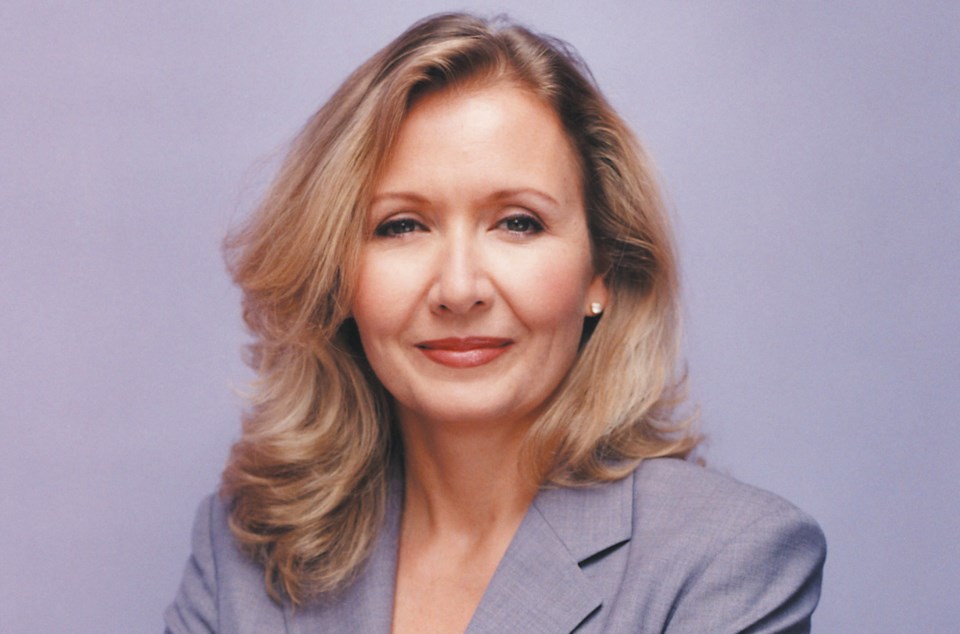Lorna Vanderhaeghe knows what it’s like to suffer with unbalanced hormones.
Thirteen years ago, she developed fibroids.
“Fibroids cause terrible heavy flooding periods,” she said. “Two heavy periods in a row and you become anemic and as soon as your iron is low you bleed more, so it’s a vicious cycle.”
Instead of agreeing to a recommended hysterectomy, Vanderhaeghe studied how women could tweak their diets and reduce the estrogen that feeds fibroids. She created a supplement to help balance hormones and, in 2011, self-published a book she co-wrote with a gynecologist called A Smart Woman’s Guide to Hormones.
Vanderhaeghe, who has degrees in nutrition and biochemistry, is presenting a free lecture on women and hormones at the Holiday Inn on West Broadway, Sept. 22.
In a talk co-presented by Finlandia Pharmacy and Natural Health Centre and Vanderhaeghe’s product line, Vanderhaeghe will discuss hot flashes and night sweats, how stress affects weight gain, endometriosis, PMS, fibroids, breast lumps, ovarian cysts, sleep, incontinence, hair loss and bioidentical hormones.
“If you have any of these conditions: endometriosis, which is very common in younger women, fibroids, heavy periods, breast lumps, PMS, these are all signs your hormones are out of balance,” she said.
She says North Americans are experiencing estrogen overload from our diets, water and environment.
Weight
“If weight loss was as easy as reducing calories and running on the treadmill, we’d all be thin,” Vanderhaeghe said about her most commonly heard concern.
She tells women to get their thyroid checked. She says women need a thyroid-stimulating hormone, or TSH, number below two to lose weight.
“The range of normal is way too big and so you could go to the doctor and have your test done and they’ll say, ‘Oh you’re fine,’ but you’re not fine,” she said.
PMDD and Mood Swings
Vanderhaeghe says severe PMS, or premenstrual dysmorphic disorder, is related to fluctuations in serotonin, the “happy hormone.” Fluctuations translate into rage, crying jags and feeling out of control.
She says many women with PMDD have problems with cortisol, or the stress hormone, and serotonin. Difficulties can be alleviated through nutrition and with the supplement 5HTP.
Women with intense mood swings should eat every three hours, down protein and “green stuff” and avoid alcohol, fruit juice and sugar.
“People with mood swings will often have sugar cravings,” Vanderhaeghe said.
“[You eat sugar and] then your serotonin goes up like a rocket ship, but it drops just as fast, and that’s what causes mood swings.”
Perimenopause/menopause
Vanderhaeghe says the average age of menopause, that’s one year without menstruating, is 52, and perimenopause is the 10 years that precede it. The 40s are often a difficult time for women because that’s when estrogen levels surge.
She says once the ovaries shut down the adrenals kick in to produce hormones.
“Women who have exhausted adrenals and low thyroid, they have a nightmare of menopause,” Vanderhaeghe said.
She tells women to focus on improving their adrenal, thyroid and liver function.
“It’s not as simple as slapping on some hormone cream. It’s really about getting to the underlying reason,” she said. “Frankly, the body’s designed to get you through the next 50 years after you go through menopause.”
Vanderhaeghe’s event runs from 7 to 8:30 p.m. at 711 West Broadway. To register, email your full name and phone number to news@finlandiahealth.com. More information about hormones is available at hormonehelp.com.
twitter.com/Cheryl_Rossi



